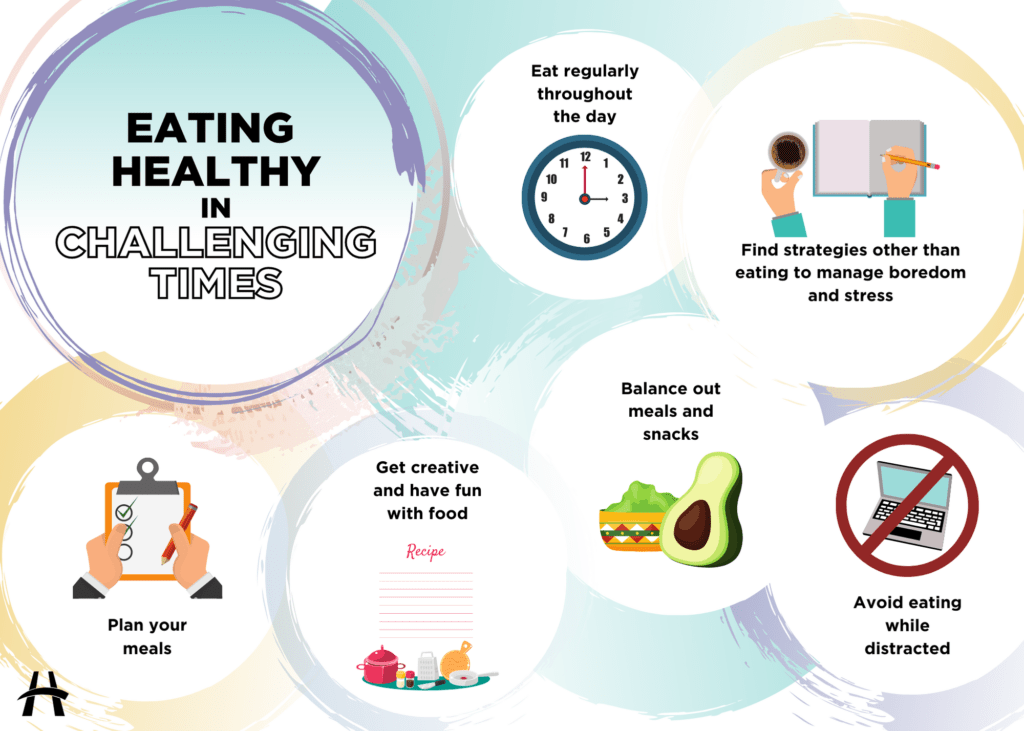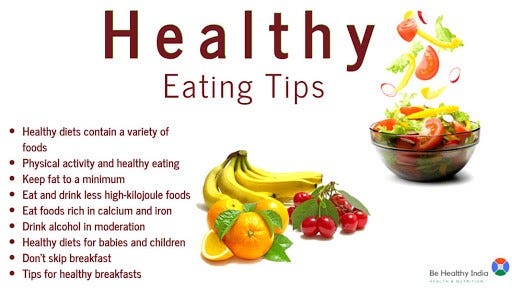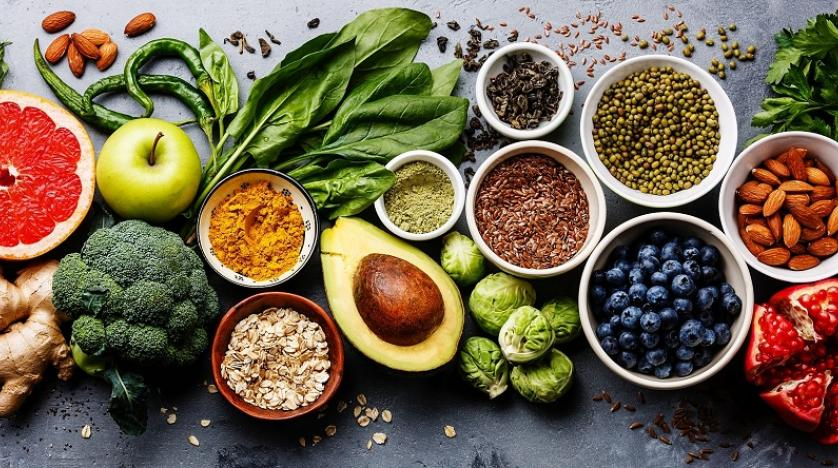In this article, I’ll be sharing some valuable tips and tricks to help you embrace a healthier lifestyle through the power of healthy eating. We all know that making nutritious choices can have a tremendous impact on our overall well-being, but sometimes it’s not easy knowing where to start. That’s where I come in! Whether you’re a seasoned health enthusiast or just starting your journey toward a better you, these tips will provide you with some actionable steps to incorporate nutritious foods into your daily routine. So get ready to nourish your body and discover the wonderful benefits of healthy eating!
Importance of Healthy Eating

Benefits of a Healthy Diet
Maintaining a healthy diet is vital for overall well-being and plays a significant role in our physical and mental health. Consuming a balanced diet rich in essential nutrients provides numerous benefits. Firstly, it helps in maintaining a healthy weight, reducing the risk of obesity, and related chronic diseases such as diabetes and cardiovascular issues. Secondly, a healthy diet boosts our immune system, making us less susceptible to various illnesses. Additionally, it promotes optimal brain function, enhances cognitive abilities, and improves mood and mental well-being. Moreover, a nutritious diet supports healthy growth and development, especially in children and adolescents. Lastly, it can contribute to higher energy levels, improved sleep patterns, and increased productivity throughout the day.
Effects of Poor Diet on Health
On the other hand, a poor or unhealthy diet can lead to significant negative effects on our health. Consuming excessive amounts of unhealthy fats, sugars, and processed foods can increase the risk of chronic conditions like heart disease, hypertension, and high cholesterol levels. It can also contribute to weight gain, obesity, and a higher likelihood of developing type 2 diabetes. Furthermore, a lack of essential nutrients found in a balanced diet can impair bodily functions, weaken the immune system, and result in nutrient deficiencies. A poor diet can have a detrimental impact on mental health as well, leading to mood swings, anxiety, and depression. It is crucial to recognize the importance of healthy eating and make necessary adjustments to our dietary habits to avoid these negative consequences.

Link between Nutrition and Overall Well-being
Nutrition is closely connected to our overall well-being. The foods we consume provide the necessary fuel for our bodies to function optimally. A well-balanced diet not only nourishes our physical health but also has a profound impact on our mental, emotional, and social aspects. Nutrient-rich foods, such as fruits, vegetables, whole grains, and lean proteins, supply the essential vitamins, minerals, and antioxidants needed for cellular function and tissue repair. They promote healthy digestion, strengthen the immune system, and support healthy brain function. Moreover, a nutritious diet can enhance mood, reduce stress, and improve cognitive abilities. Overall, making conscious choices about what we eat contributes to a better quality of life and increased longevity.
Building a Balanced Plate
Understanding Macronutrients
To build a balanced plate, it’s essential to understand macronutrients and their role in our diet. Macronutrients include carbohydrates, proteins, and fats, which provide the necessary energy and building blocks for our bodies. Carbohydrates are the body’s primary source of fuel and can be found in foods such as grains, fruits, and vegetables. Proteins are crucial for the growth and repair of our cells and can be obtained from sources like lean meats, poultry, fish, beans, and legumes. Fats, though often demonized, are essential for hormone production, brain function, and the absorption of fat-soluble vitamins. However, it is important to choose healthy fats from sources like nuts, seeds, avocados, and olive oil. Balancing the consumption of these macronutrients is key to achieving a well-rounded diet.

Choosing the Right Portion Sizes
In addition to understanding macronutrients, portion control is necessary to avoid overeating and maintain a healthy weight. It is easy to consume larger portions than required, leading to an excess intake of calories. One way to portion control is to use visual cues: filling half of the plate with vegetables and fruits, one-fourth with lean proteins, and the remaining one-fourth with whole grains or starchy vegetables. Additionally, using smaller plates and bowls can help in reducing portion sizes. It’s important to listen to our body’s hunger and fullness cues and eat mindfully, savoring each bite and slowing down the eating process.
Incorporating Fruits and Vegetables
Fruits and vegetables are essential components of a healthy diet due to their high content of vitamins, minerals, fiber, and antioxidants. They provide a wide range of health benefits, including reducing the risk of chronic diseases, improving digestion, and promoting healthy skin. Aim to incorporate a variety of colorful fruits and vegetables into your daily meals and snacks. Fresh, frozen, or even dried fruits and vegetables are all nutrient-dense options. Include leafy greens like spinach and kale, vibrant berries, citrus fruits, cruciferous vegetables like broccoli and cauliflower, and others that suit your preferences. Getting creative with different cooking methods and recipes can make consuming fruits and vegetables both enjoyable and delicious.

Adding Whole Grains
Whole grains are a valuable source of complex carbohydrates, fiber, and essential nutrients. They provide longer-lasting energy and contribute to a healthy digestive system. Incorporating whole grain products in your diet can be as simple as choosing whole grain bread, pasta, and brown rice instead of their refined counterparts. Look for labels that specify “100% whole grain” or “whole wheat” to ensure you are consuming the nutritious parts of the grain. Quinoa, oats, and barley are also excellent whole grain alternatives to add variety to your meals. The inclusion of whole grains can help in reducing the risk of heart disease, maintaining proper bowel function, and managing weight.
Including Lean Proteins
Protein is crucial for muscle growth, repair, and various other physiological functions. Choosing lean protein sources is healthier for the body as they typically contain less saturated fat and cholesterol. Incorporate lean proteins in your meals through options such as poultry, fish, lean cuts of meat like chicken breast or sirloin steak, eggs, beans, legumes, and tofu. These foods provide necessary amino acids, which are the building blocks for protein synthesis in the body. Consuming adequate protein promotes satiety, aids in weight management, and supports the maintenance of lean muscle mass. Don’t forget to vary your protein sources to enjoy a diverse range of nutrients.

Healthy Fats and Oils
Healthy fats are an essential part of a balanced diet and should not be avoided. They provide energy, help in the absorption of fat-soluble vitamins (A, D, E, and K), and contribute to brain health. Opt for unsaturated fats found in foods like avocados, nuts, seeds, and olive oil. These fats have been associated with a reduced risk of heart disease and inflammation. While fats are important, moderation is key, as they are calorically dense. Be mindful of portion sizes and aim to incorporate healthy fats into your meals in place of saturated and trans fats found in processed snacks and fried foods.
Stay tuned for Part 2.


